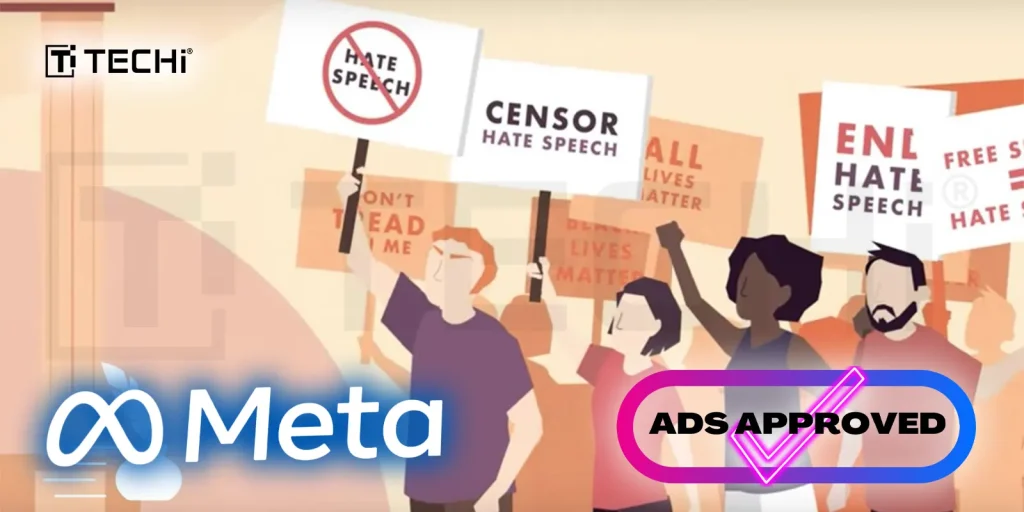A recent study by the German digital rights organization Eko has revealed that Meta and X (formerly Twitter) approved advertisements containing violent anti-Muslim and antisemitic hate speech ahead of Germany’s federal election on February 23, 2025. These findings raise significant concerns about the platforms’ content moderation practices and their potential impact on the electoral process.
Eko’s investigation involved submitting deliberately harmful political ads to Meta and X to assess their ad approval systems. Alarmingly, X approved all 10 of the submitted hate speech ads, while Meta approved five out of ten, despite both companies’ policies prohibiting such content. Some ads featured AI-generated imagery depicting hateful narratives without disclosing their artificial origin. Meta’s policies require such disclosures for social issues, elections, or political ads, yet half of these undisclosed AI-generated ads were still approved.
Elon Musk’s Involvement in German Politics
In addition to platform-specific issues, Elon Musk, the owner of X, has actively engaged in Germany’s political discourse. In December 2024, Musk tweeted, ‘Only the AfD can save Germany,’ expressing support for the far-right Alternative für Deutschland (AfD) party. He also hosted a live stream with AfD leader Alice Weidel on X, providing the party with a significant platform during the election period.
The Digital Services Act and EU Investigations
In addition, Meta failed to enforce its own AI content policies. Some of the submitted ads contained AI-generated imagery depicting hateful narratives, yet Meta approved half of these without requiring disclosure that AI was used—a direct contradiction to its policy mandating transparency for AI-generated political content.
“Our findings suggest that Meta’s AI-driven ad moderation systems remain fundamentally broken, despite the Digital Services Act (DSA) now being in full effect“.
Eko has submitted its findings to the European Commission, which oversees the DSA’s enforcement. The organization argues that neither Meta nor X fully comply with the act’s hate speech and ad transparency provisions. This aligns with Eko’s prior investigation in 2023, which similarly found Meta approving harmful ads despite the DSA’s impending implementation.
“Rather than strengthening its ad review process or hate speech policies, Meta appears to be backtracking across the board,” an Eko spokesperson said. The statement points to Meta’s recent decisions to scale back its fact-checking and moderation policies, which they argue could place the company in direct violation of the DSA.
Potential Penalties Under the DSA
Violations of the DSA could lead to significant penalties, including fines of up to 6% of a company’s global annual revenue. If systemic non-compliance is proven, regulators could even impose temporary access restrictions on platforms within the EU. However, the EU has yet to finalize its decisions on Meta and X, leaving the possibility of enforcement actions uncertain.
Civil Society Organizations Raise Alarm Over Election Security
With Germany’s election imminent, digital rights groups warn that the DSA has not provided adequate protection against tech-driven election manipulation. A separate study from Global Witness found that algorithmic feeds on X and TikTok favor AfD content over other political parties. Researchers have also accused X of limiting data access, preventing independent studies on election-related misinformation—despite the DSA requiring platform transparency.
“Big Tech will not clean up its platforms voluntarily,” Eko’s spokesperson stated. “Regulators must take strong action—both in enforcing the DSA and implementing pre-election mitigation measures.”
Will Regulators Step In Before the Election?
As German voters prepare to go to the polls, pressure is mounting on EU regulators to act swiftly to prevent further disinformation and hate speech from spreading online. Despite calls for intervention, neither Meta nor X has publicly responded to Eko’s latest findings. With election integrity at stake, the question remains: Will Meta and X adjust their policies in response to regulatory pressure, or will the EU take more decisive action to enforce compliance?
Read More: Meta Rolls Out Community Notes on Facebook, Instagram, and Threads





Administrator